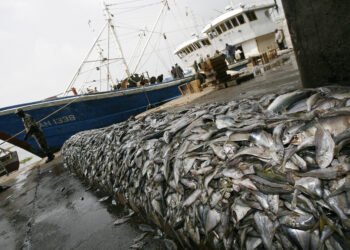Sudan’s Prime Minister Kamil al-Taib Idris held key bilateral talks in Cairo, marking his first foreign visit since taking office. As Egypt and Sudan reaffirmed their commitment to cooperation amid rising tensions over the Nile River and Sudan’s ongoing internal conflict, the talks took place.
During the visit, Egyptian President Abdel Fattah el-Sissi received Prime Minister Idris, who later addressed the press alongside Egypt’s Prime Minister Mustafa Madbouly. Their statements revealed a shared desire to deepen relations and address pressing regional challenges.
Madbouly made Egypt’s stance on Ethiopia’s controversial Grand Ethiopian Renaissance Dam (GERD) clear, saying Egypt had “complete rejection of the unilateral steps that Ethiopia is taking with regards to the Nile River.” His remarks underscore Egypt’s longstanding concern that Ethiopia’s actions on the Nile threaten regional stability and the livelihoods of millions.
In July, Egyptian officials stated that Ethiopia had “consistently lacked the political will” to finalize a binding agreement on the use of Nile waters, an issue at the core of diplomatic friction between Cairo, Addis Ababa, and Khartoum.
Egypt relies heavily on the Nile River for irrigation, drinking water, and electricity. With a population exceeding 100 million, any significant reduction in Nile flow, as Egypt believes could result from the dam, poses a dire risk to the country’s water security and agricultural production.
Sudan shares similar concerns but has at times walked a more ambivalent line in the GERD negotiations. However, Idris’s statements during his Cairo visit signaled alignment with Egypt’s position. “There is agreement” and “consensus” on the issues discussed, he declared, without providing details. His emphasis on mutual understanding suggests Sudan may be leaning closer to Egypt in its approach to the Nile dispute.
Meanwhile, Sudan continues to reel from the brutal civil conflict that broke out in April 2023 between the national military and the paramilitary Rapid Support Forces (RSF). The war has plunged the country into chaos, killed over 40,000 people, and displaced millions.
The conflict has also devastated Khartoum. Once a bustling capital, the city now shows signs of slow recovery. Its presidential palace and airport were destroyed during heavy fighting, and although some markets have reopened, basic services like electricity remain unreliable.
Sudan’s War Drives Refugees Into Egypt
Egypt has taken in more than 1.5 million Sudanese refugees fleeing the violence, making it the largest host nation for those displaced by the war. In addition to those who have crossed borders, more than 7 million Sudanese remain internally displaced across the country.
Egypt has voiced unwavering support for Sudan’s “unity, sovereignty, and territorial integrity,” and has positioned itself as a key regional player in efforts to stabilize its southern neighbor. The Idris visit, held in August 2025, is being widely interpreted as an attempt to deepen Egyptian-Sudanese cooperation on stabilization, reconstruction, and humanitarian efforts.
Historically, relations between the two nations have swung between camaraderie and conflict. Territorial disputes, such as the mineral-rich Hala’ib Triangle, have fueled periodic tension. Egypt also remembers the 1995 assassination attempt on then-President Hosni Mubarak in Addis Ababa, allegedly tied to Sudanese elements. Despite these flashpoints, the two countries have maintained important agreements allowing freedom of movement and trade, though implementation has often lagged.
More recently, Egypt’s support during Sudan’s civil war has centered on political backing for the military leadership and mediation attempts, though critics say Cairo’s approach may have favored one side of the conflict.
Nevertheless, both Cairo and Khartoum recognize the imperative of coordinated action to restore peace. They are also focused on enhancing development cooperation and managing broader challenges, including the geopolitical implications of instability in Sudan, which borders seven countries and sits at the crossroads of Africa and the Arab world.
As Egypt and Sudan move forward, their strategic partnership is increasingly seen as essential, not only to their national interests but also to regional stability. Despite lingering disagreements, the two nations appear poised to strengthen collaboration in the face of mutual threats and shared ambitions.
READ ALSO: Netanyahu Voices Israel’s Intention To Control Gaza



















